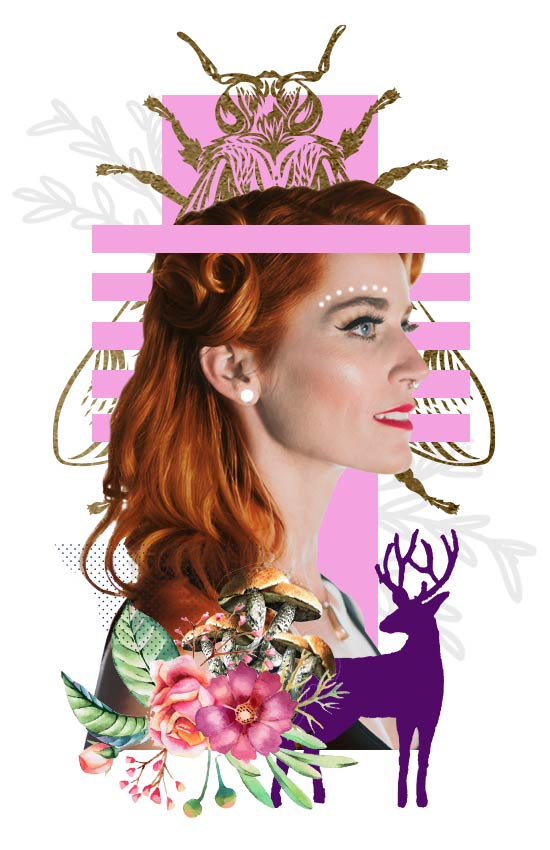Does other people’s comfort take priority over your own wellbeing? If so, you might be a people-pleaser… People-pleasing is a trait shared by many highly sensitive people and empaths, because we can intuitively feel what other people need.
But, often – we end up prioritizing other people’s needs and let our own go unmet… or even undiscovered. For your emotional, mental, and physical wellbeing, it’s incredibly important to be able to let go of taking care of everyone BUT yourself — it’s not your job to make everyone else happy. Here’s how to stop people-pleasing.
For your emotional, mental, and physical wellbeing, it’s incredibly important to be able to let go of taking care of everyone BUT yourself — it’s not your job to make everyone else happy.
Who are people-pleasers?
A people-pleaser is someone who knows everything about the people they care about but feels invisible.
They wish their relationships weren’t so one-sided, but are also resistant to becoming “needy” or a burden on their loved ones. People-pleasers are often hyper-independent, highly capable people who seem to have it all together, but deep inside feel burned out, resentful, and invisible.
Why do you people-please?
Highly sensitive people and empaths can feel other people’s pain, emotions, and disapproval, and it can be very uncomfortable. One way to alleviate that discomfort is to address someone’s needs, even if they aren’t asking for support.
People-pleasing can also be trauma related. If you felt unsafe as a child, then you may use people-pleasing as a protection mechanism. It’s a natural way that the nervous system protects you as you navigate the world. If you want to be safe, you need to ensure that you aren’t making anyone angry.
By anticipating other people’s needs and emotions and staying vigilant for signs of distress, you can prevent yourself from getting in harm’s way.
But, as a mature adult, you are no longer obligated to caretake other people’s emotions at the expense of having your needs met.
Another reason why you may default to people-pleasing is if you have the belief that you must earn the love you receive, by being a “good” person.
You may believe that the only way to be a good person is by helping those around you, no matter the cost.
Why do you need to stop people-pleasing?
How do you stop people-pleasing?
If you want to change the pattern of people-pleasing in yourself, you need to identify the impact the pattern has on you, track how it feels, and cultivate an awareness of when you’re doing it.
By tracking how this pattern shows up for you, rather than taking on another person’s discomfort, you can start making decisions that are true to who you are and what you need… Even if they’re upsetting or invite judgement from other people.

HOW DO YOU STOP PEOPLE-PLEASING?
START BY ASKING YOUSELF “IS SAYING ‘YES’ TO THIS SAYING ‘NO’ TO MYSELF?”
When you ask yourself this question, what comes up for you?
Do you notice you’re trying to convince yourself to say yes to someone or something? If you are, then something is off.
Convincing (yourself or someone else) is a sure sign that something is OFF.
When you know, you know, you don’t need to convince yourself or justify why. If you get any sensations of heaviness, density, or tightness when you consider saying yes to someone or something, that’s an indication that it may not be in your true best interest as an organism.
NEXT, ASK YOUSELF “WHAT DO I WANT? WHAT DO I NEED?”
Sometimes you won’t know the answers.
If you’re frustrated by these questions, you can put a hand on your heart and say, “I don’t need to know, but I love myself, and I promise to keep loving myself.”
What do I want? What do I need? Let it be basic… it doesn’t have to be the meaning of our life; it can be as simple as “I need some water.” “I need to move my body.” “I need to clean my room.”
Another power statement that may help when you notice this pattern of people-pleasing is to say, “Other people’s feelings and emotions are not my responsibility.”
Let’s say that one again:
OTHER PEOPLE’S FEELINGS AND EMOTIONS ARE NOT MY RESPONSIBILITY.
This may feel charged for highly sensitive empaths because you are genuinely concerned about others and want your loved ones to be happy and feel good. I’m not saying that you shouldn’t consider other people’s needs; instead it’s about releasing people into being self-responsible human beings.
We ALL need to take responsibility for our emotional responses to life.
These three approaches can help support your nervous system to be more resilient as you shift into healthier ways of being empowered. Having the nervous system be on board with your growth transformation is key to making lasting changes.
Noticing that you’re not able to sustain yourself in letting go of people-pleasing? There may be additional nervous system protection patterns at work that are trying to keep you safe.
Learn more about how to stop protecting yourself from success in my free masterclass, “Four Simple Steps to STOP protecting yourself from success. Choose the best time for you and register for the class HERE.



 Lola L’Amour is a spiritual mentor, healer, creator of the Future Ancients podcast and founder of the Anima Mystery School.
Lola L’Amour is a spiritual mentor, healer, creator of the Future Ancients podcast and founder of the Anima Mystery School. 




